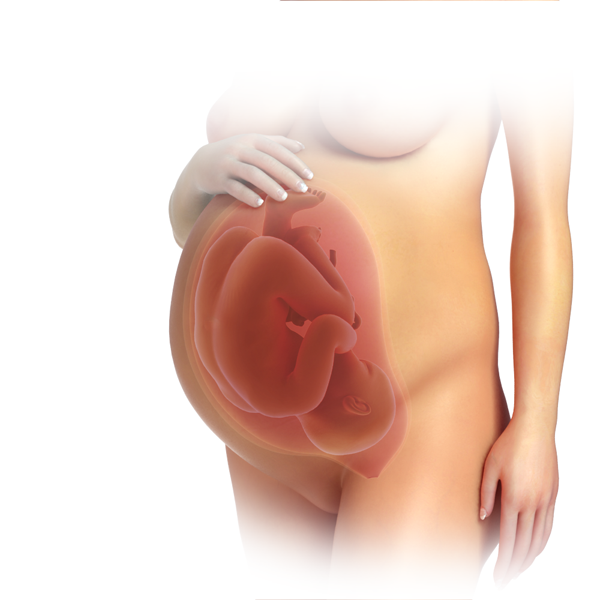Week 40: Time to think about asking friends and family for help and support after the baby arrives.

-
Your care provider may offer a vaginal exam to find out if Your cervix is beginning to shorten (efface), soften (ripen) and dilate (open).
About.com
-
After birth, your uterus will shrink from a 4 pound organ down to a 4 ounce organ by six weeks postpartum. The bleeding you experience after birth is called lochia. From the day of birth to within four-to-six weeks postpartum, your lochia will go from heavy and red to brownish to yellowish to whitish.
Baby Center
-
The afterpains you experience postpartum are healthy and signal that your uterus is continuing to shrink or involute. You may notice heavier bleeding and afterpains during breastfeeding, which is also normal and healthy. If you notice considerable more bleeding after strenuous activity, that is your body's way of telling you to slow down and rest. Too much physical activity too soon after birth can delay the healing process. You deserve to rest!
About.com
-
Did you know that in most other cultures outside of the United States, postpartum women get 30-40 days of complete rest and have no responsibilities other than to eat, nurse their babies and sleep? Biologically, it's healthy for mother to eat very well and get lots of rest postpartum. Think about who can support you and your partner during the weeks after you have your baby.
About.com
-
Your bottom or perineum may be sore, swollen and tender after having Your baby. Witch hazel pads and ice packs tucked into Your panties for 20 minutes at a time can greatly relieve the normal swelling and tenderness of a postpartum bottom.
Baby Center
-
Clean your bottom and perineum with a hand-held squirt bottle filled with warm water each time you go to the bathroom. Keeping your bottom very clean will help speed the healing of any stitches or swelling.
Baby Center
BirthWatch Recommends:
This is a DVD. Sometimes seeing is believing when it comes to proper latch and positioning of baby. Great for folks who are nervous about how to breastfeed.
